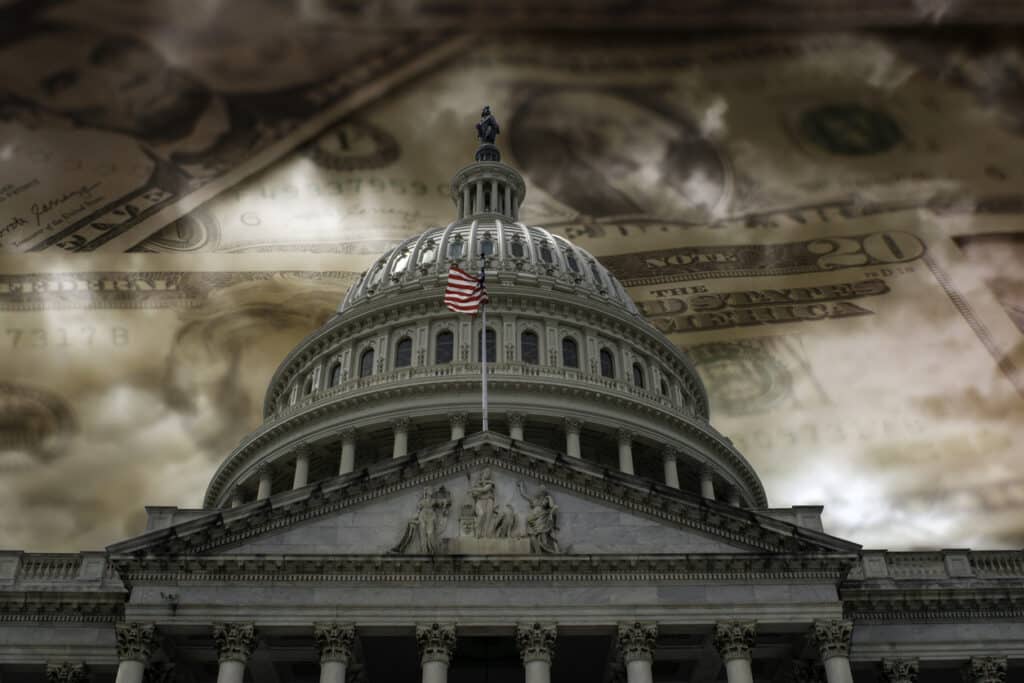A bipartisan bill was introduced this week that aims to fast-track key changes to the United States tax code ahead of upcoming filing deadlines.
Titled the Tax Relief for American Families and Workers Act of 2024, the bill presents a three-year tax framework that—among other things—would backtrack on the research and expenditure (R&E) amortization and capitalization rules that went into effect as part of the IRC Section 174 addendum.
Specifically, the bill proposes a delay to the provision that “research or experimental costs paid or incurred in tax years beginning after December 31, 2021 […] are required to be deducted over a five-year period” while R&E conducted outside of the U.S. would be deducted over a 15-year period.
Instead, lawmakers are hoping to push the launch of these provisions to taxable years starting after December 31, 2025, enabling taxpayers to continue deducting domestic R&E costs that are incurred up until January 2026.
The TL;DR for US startups?
If this new bill is passed, the long-dreaded tailwinds of the 2017 Tax Cuts and Jobs Act (TCJA) won’t land this year. This includes allowing many innovative businesses to continue leveraging the long-standing R&E and R&D tax credits through IRC Section 41 (and avoiding an undue tax burden) for at least the next calendar year.
Expanding US competitiveness globally
“This legislation locks in over $600 billion in proven pro-growth, pro-America tax policies with key provisions that support over 21 million jobs,” Ways and Means Chairman Jason Smith (R-Mo.) said in a statement.
Senate Finance Committee Chairman Ron Wyden (D-Ore.) added: “By incentivizing R&D, this plan is also going to promote innovation and help sharpen our economic competitiveness with China and the rest of the world.”
The focus on global competitiveness is evident throughout the bill, with a specific focus on shoring up U.S. businesses in the face of emergent Chinese innovators. As a result, the legislation is currently enjoying widespread bipartisan support—a rarity in the current political climate.
“I have been strongly pushing to incentivize American R&D since first introducing bipartisan legislation in 2020 to restore the R&D deduction, and with the clear growing bipartisan support in both the Senate and the House, I will keep working with my colleagues and the business community to get this deal done,” Sen. Maggie Hassan (D-N.H.) said in a statement.
Along with the changes to R&E expensing, the legislation also outlines the following changes to expand homegrown innovation:
- Interest deductibility: Extended flexibility for businesses who had no choice but to borrow at high interest rates to meet their payroll obligations and expand their operations.
- 100 percent expensing: Restore full and immediate expensing for investments in machines, equipment, and vehicles.
- Taiwan double tax relief: Remove the current double taxation that exists for businesses and workers with a footprint in both the United States and Taiwan.
Additional support for families, Main Street business
Outside of R&E, the Act is also looking to fast-track changes to the enhanced Child Tax Credit (CTC), expanding access with a phased increase to the refundable portion of the CTC for 2023, 2024, and 2025. This includes eliminating penalties for larger families, while employing a “One-year income lookback” that allows taxpayers to use either current or prior-year income to calculate their credit for 2024 or 2025.
Moreover, the bill hopes to expand the small business expensing cap, allowing SMBs to write off up to $1.29 million in costs compared to the $1 million cap enacted as part of the TCJA in 2017. In that same vein, the bill adjusts the reporting threshold for businesses engaging with subcontractors from $600 to $1,000—the first adjustment to the threshold since the 1950s.
Racing to Tax Day
While the legislation enjoys wide private and public sector support across parties, it’s hardly a sure thing that these changes will be passed in time to impact upcoming tax claims—especially as the IRS begins accepting federal income tax returns starting January 29.
While there’s hope that businesses will be able to continue claiming their R&E expenditures at pre-TCJA levels with this year’s filing, businesses shouldn’t take a “wait and see” approach to compiling their 2023 fiscal year claims.
At Boast, we partner with hundreds of startups across North America to both optimize their R&D while maximizing their access to the non-dilutive government funding they deserve.
Check out our Guide to R&E Amortization and Capitalization to get a primer on how the current Section 174 rules are causing headaches for startups across the United States.
Then, talk to an expert at Boast today to learn how we can help you uncover sources of funding to extend your R&D runway.










